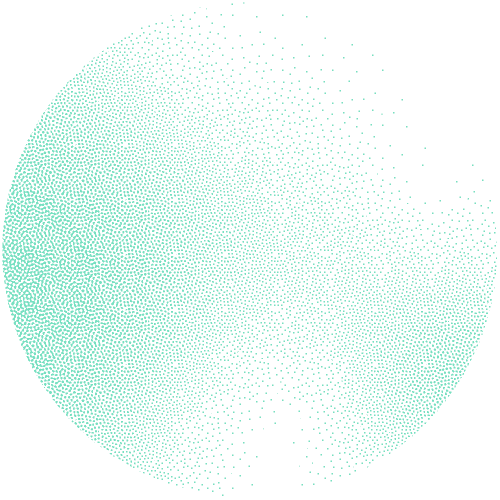ATGCCGGAATTGGCACATAACAAGTACTGCCTCGGTCCTTAAGCTGTATTGCACCATATGACGGATGCCGGAATTGGCACATAACAAGTAC
TGCCTCGGTCCTTAAGCTGTATTGCACCATATGACGGATGCCGGAATTGGCACATAACAACGGTCCTTAAGCTGTATTGCACCATATGACG
GATGCCGGAATTGGCACATAACAAGTACTGCCTCGGTCCTTAAGCTGTATTTCGGTCCTTAAGCTGTATTCCTTAACAACGGTCCTTAAGG
ATGCCGGAATTGGCACATAACAAGTACTGCCTCGGTCCTTAAGCTGTATTGCACCATATGACGGATGCCGGAATTGGCACATAACAAGTAC
TGCCTCGGTCCTTAAGCTGTATTGCACCATATGACGGATGCCGGAATTGGCACATAACAACGGTCCTTAAGCTGTATTGCACCATATGACG
GATGCCGGAATTGGCACATAACAAGTACTGCCTCGGTCCTTAAGCTGTATTTCGGTCCTTAAGCTGTATTCCTTAACAACGGTCCTTAAGG


GATK Workshop Lecture



23 September 2016



For-profit: 0 CHF
Overview
This workshop will focus on the core steps involved in calling variants with the Broad’s Genome Analysis Toolkit, using the “Best Practices” developed by the GATK team. You will learn why each step is essential to the variant discovery process, what are the operations performed on the data at each step, and how to use the GATK tools to get the most accurate and reliable results out of your dataset. In the course of this workshop, we highlight key functionalities such as the GVCF workflow for joint variant discovery in cohorts, RNAseq-specific processing, and somatic variant discovery using MuTect2. We also preview capabilities of the upcoming GATK version 4, including a new workflow for CNV discovery.
The workshop is composed of one day of lectures on September 26 (including many opportunities for Q&A) and one optional day of hands-on training on either September 27 or 28. The practical tutorial session will be offered twice to accommodate as many people as possible. Attendance at the practical tutorial is optional, however attendance at the lecture is required before participation in one of the practical tutorial sessions.
Audience
The lecture-based component of the workshop is aimed at a mixed audience of life scientists who are new to the topic of variant discovery or to GATK, seeking an introductory course into the tools, or who are already GATK users seeking to improve their understanding of and proficiency with the tools. The hands-on component is aimed at novice to intermediate users who are seeking detailed guidance with GATK and related tools.
Learning objectives
During the lecture day, we explain the rationale, theory and application of our Best Practices for Variant Discovery in high-throughput sequencing data. In the practical tutorial session, we walk attendees through hands-on exercises that teach how to manipulate the standard data formats involved in variant discovery and how to apply GATK tools appropriately to various use cases and data types. In the course of these exercises, we demonstrate useful tips and tricks for interacting with GATK, dealing with problems, and using third-party tools such as Samtools, IGV and RStudio.
Please note that this workshop is focused on human data analysis. The majority of the materials presented does apply equally to non-human data, and we will address some questions regarding adaptations that are needed for analysis of non-human data, but we will not go into much detail on those points.
Prerequisites
Knowledge / competencies:
Attendees should already be familiar with the basic terms and concepts of genetics and genomics.
Technical:
For the practical tutorial, basic familiarity with the command line environment is required. Attendees will be expected to bring their own laptops with software preinstalled (detailed instructions will be posted before the course). Supported systems are Mac and Unix/Linux systems; MS Windows is generally not supported. If you have access to the sciCORE or Vital-IT HPC infrastructures and insist on using a Windows machine, please contact Geoffrey Fucile to make arrangements.
Your machine should be wlan-enabled. There is eduroam wifi access available, and we will provide a guest account for the event.
Application
The registration fees are 100 CHF for the lecture and practical session, and 50 CHF for the lecture. The practicals on September 27 and 28 are identical, please only apply for one. Participants from the Basel area may be limited to the September 28 session to accommodate participants traveling from abroad.
Registration for lecture on September 26
Registration for practicals on September 27
Registration for practicals on September 28
Deadline for registration and free-of-charge cancellation is set to September 12, 2016. Cancellation after this date will not be reimbursed. Please note that participation to SIB courses is subject to this and other general conditions, available here.
You will be informed by email of your registration confirmation. Upon reception of the confirmation email, participants will be asked to confirm attendance by paying the fees within 5 days.
Location
Lecture day, September 26:
Pharmazentrum Hörsaal 2
University of Basel
Klingelbergstrasse 50
CH-4056 Basel
Practical tutorial sessions, September 27 and 28:
Biozentrum Rm 104
University of Basel
Klingelbergstrasse 70
CH-4056 Basel
If traveling by public transport, take bus 30 to Bernouillanum stop from either the Basel SBB train station or Basel Badischer Bahnhof train station. From the EuroAirport Basel-Mulhouse-Freiburg, exit to the Swiss section and take bus 50 to Kannenfeldplatz stop, then transfer to either bus 36 or 38 to Kinderspital stop. From Kannenfeldplatz, it is less than 10 minutes walk down Metzerstrasse to the Biozentrum/Pharmazentrum.
There will be signs directing you to the lecture and tutorial rooms. For additional accessibility services, please contact Geoffrey Fucile.
Tentative schedule
9:30-11:00 Lecture/Discussion/Practicals
11:00-11:30 Coffee break
11:30-13:00 Lecture/Discussion/Practicals
13:00-14:00 Lunch break
14:00-15:30 Lecture/Discussion/Practicals
15:30-16:00 Coffee break
16:00-17:00 Lecture/Discussion/Practicals
Additional information
Coordination: Geoffrey Fucile
You are welcome to register to the SIB courses mailing-list to be informed of all future courses and workshops, as well as all important deadlines using the form here.
For more information, please contact training@sib.swiss.